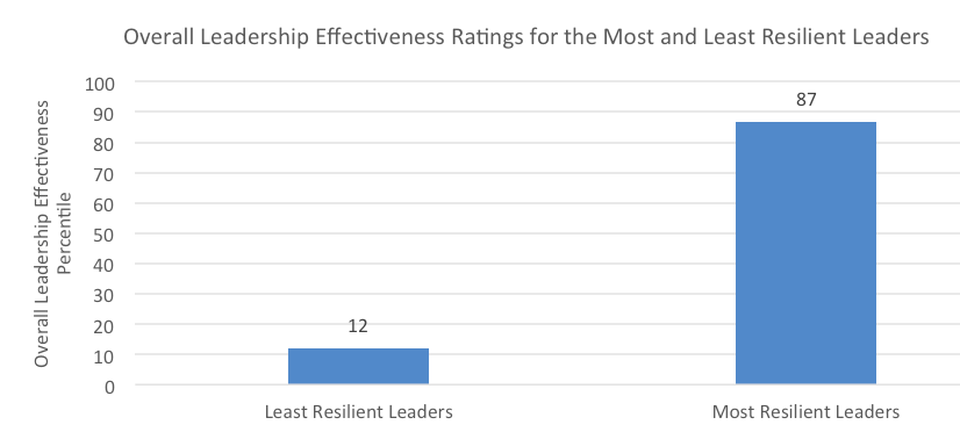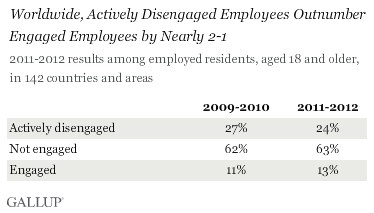What’s the difference between organizations that last ages and the ones that die after some time? Why do some businesses with limited resources rise to the top, while others with all the assets get buried with time?
It’s the leadership that makes all the difference. Leadership gives your organization the strength to stand the test of time. Through great leadership, you can transform an ordinary institution into an extraordinary one.
Your leadership defines the vision, mission, and values of your organization. It is the foundation of how your company operates and has the power to give direction to its performance.
Hence, it’s imperative that you focus on building leadership skills to attain the objectives of your organization.
What Makes A Good Leader? Here Are The Essential Leadership Traits…
“A leader is one who knows the way, goes the way and shows the way” – John C Maxwell.
Leadership involves influencing a group to attain the desired objective. To influence people, you need to have leadership qualities that make them follow you.
Though there are many qualities of a good leader, a few are universal ones without which you cannot be a successful leader. Let’s get on to them one by one.
1. Empathy
As a leader, you constantly deal with people: employees, clients, partners, media. You cannot manage them until you have an understanding of their feelings. It is not necessary to agree with every point of view, but you need to be considerate about their opinion; this is where empathy comes into play.
According to a high-resolution leadership report, empathy is the number one leadership skill to be a successful leader.
So, how can you develop empathy?
You can use your power of being vulnerable to be empathetic. When you are open to vulnerability, you welcome discussions without getting offended. Thus, you connect with people easily. You develop the ability to understand other perspectives by getting in their shoes.
What if you are not sensitive to people’s feelings?
“One of the worst corporate gaffes” occurred in a United Airlines plane when a passenger was forcibly dragged out after refusing to give up his booked seat. The CEO, Oscar Munoz, failed to show empathy in his first two public statements, causing a lot of PR damage to the airlines.
Thus, if you lack empathy, your organization pays a high cost.
2. Great Communication
As a leader, you need to express ideas and share information with a variety of audiences: people within the organization, customers, partners, and stakeholders, among others. You set the vision, mission, values, and culture of the organization and align these aspects with the goals of the business.
Communication is key to these interactions. If you fail to communicate, the goals of your organization may not be met, leading to its collapse.
Thus, communication is the backbone of your company. However, according to a survey by Harris Poll and interact, 69% of leaders are uncomfortable in communicating with their employees.
Why do you fail to communicate?
As George Bernard Shaw said, “The single biggest problem in communication is the illusion that it has taken place.” Communication fails because you fail to travel that extra mile and establish that your message has reached the right audience exactly as you wanted to convey it.
Also, ensure that you communicate, no matter what the situation. If an unfortunate event causes fear, doubt, and uncertainty, still, “endure the risk of being disliked in the name of cleansing confrontation.”
How do you communicate to achieve the desired results?
You need to be well versed in all aspects of communication to deliver your message. Following are some tips you can use to communicate effectively:
- Meet people; don’t be known only by your emails.
- Listen: It helps to get feedback and to identify areas of improvement.
- People remember your ideas if you communicate through stories and images rather than statements and documents.
- If something goes wrong, ensure you speak up and clear issues. Direct and straightforward communication simplifies and sorts things quickly.
- Keep your messages consistent and authentic; it builds trust.
3. Resilience And Decisiveness
Your organization is bound to go through turbulent times: leadership transition, organizational restructuring, mergers, PR crisis, and many more. All eyes are on you during these challenges. Your actions in these tough times decide whether your organization will sink or come out stronger than before.
What is it that will make you an effective leader in such adversities?
It’s your resilience and decisiveness that give you the right mindset to bounce back. To be in control of the situation, you should not buckle down under pressure and make decisions spontaneously.
Studies prove that to be a successful leader you need to be resilient and decisive. Research by Zenker Folkman found that “the most resilient leaders are viewed as the most effective leaders as well.”

When you exhibit resilience and decisiveness, you solve issues and prevent worsening of a situation.
For instance, when two black men were arrested inside a Starbucks store without a crime, there was a public outcry of discrimination. Some were calling for the store manager’s job.
The CEO, Kevin R Johnson, quickly apologized and made changes in organization policies. Further, eight thousand stores were closed for racial-bias training.
4. Integrity
Suppose you have a choice to hire either of the following two employees.
- A professional who has ample work-experience, well-qualified for your role, and excellent technical competency …but has a background of ethical issues.
- Ordinary skills and relatively less work experience, but a proven track record of outstanding work ethic.
Which one would you hire?
I’m sure the second one even though his task competence is not great. What made you choose him?
Like you want to work with honest people, similarly, professionals look up to integral leaders. A survey by Robert Half Management Resources found that workers and CFOs cite integrity as a top attribute of corporate leaders.

“It is true that integrity alone won’t make you a leader, but without integrity, you will never be one.” – Zig Ziglar
Integrity also sets up trust of stakeholders in your business. Investors, customers and partners look for fairness and honesty in your policies and strategies. You need to have a positive moral repute to win their confidence. Integrity helps you build this reputation among all associates.
So how can you emphasize integrity in your organization work culture?
Have a transparent ethics policy for all your business processes; this along with a moral code of conduct gives your organization the clarity to choose the right actions. Frequent audits to check compliance, makes everyone accountable to these values.
5. Enthusiasm To Motivate
A survey by Gallup claims that only 13% of employees worldwide are engaged in their work.

Why do so many employees fail to participate actively in work?
It is because leaders fail to motivate. Motivation drives the performance of your employees and helps you meet and even exceed organizational goals. If you lack the enthusiasm to motivate, you will end up with an inefficient work-force. As a result, productivity will suffer, and you will fail to meet the targets of your organization.
Want your employees to contribute positively to work?
Then you need first to have the zeal yourself to achieve the objectives of your business. Be genuinely passionate about your company’s mission. As Simon Sinek puts it, “Great leaders start with why.” If you’re unsure of yours, then you need to do some introspection!
Next, you need to commit to finding professionals whose ambitions fit with what you want to achieve. Once you onboard people where there’s a synergy with your vision, motivation comes down to setting up goals, tracking performance, and giving regular feedback.
6. Vision And Courage
“A leader has the vision and conviction that a dream can be achieved. He inspires the power and energy to get it done.” – Ralph Lauren
Vision is the essence of your leadership. It is the image of your organization’s future in your mind and thus articulates the purpose of your business. Your vision focuses the attention of everyone in your organization on the most important things.
A compelling vision will motivate your employees by directing them towards a common goal. For example, the vision of Recellular, a mid-sized company, is an example of how powerful a strong vision can be.
However, in today’s complex business environment, your vision will be challenged by disruptive times like the advent of new technologies, negative economic impacts, and corporate restructuring.
For example, if your vision is to be amongst the leading IT solutions services providers, you will need to adapt to the new digital technologies. You may have to migrate technology platforms, train employees, invest in engineering infrastructure.
How will you ensure that you stick to your vision in such events?
You need to be courageous to foster your ideas and make bold moves that transform your business in dynamic scenarios.
For instance, when Alan Mulally took over as CEO of Ford, the company was losing $18 billion a year. Mulally restructured Ford’s entire product line, automated its factories by borrowing $23.5 million. Ford not only avoided bankruptcy but also became a profitable organization.
Courageous leadership has a positive impact on various essential aspects of your business, like R&D programs, investments in emerging markets, challenging acquisitions, among others.
7. Creativity
A survey conducted by IBM, of 1500, corporate leaders finds creativity as the most important leadership quality for success.
“Creativity involves breaking out of expected patterns in order to look at things in a different way.” – Edward de Bono
No matter what your line of business is, the current times are extremely competitive. And the competition is simply about the generation of new and better ideas. If you are creative as a leader, you will be able to compete with your inventiveness. A creative mindset will help you produce better propositions than your competitors.
Creativity also aids in problem-solving. With a creative approach, you get a new perspective to solve an issue. Creativity gives you the space to think out of the box.
This helps in generating solutions that were not thought of before.
Creativity and innovation are the sides of the same coin. Your creativity brings imagination to work, which helps in harnessing new ideas and aids in innovation.
As a creative leader, you have an innovative mindset that makes you a pioneer. You can think ahead of your time and will always be able to bring something new to the table.
8. Charisma
“Hi Team, Good morning. Please follow your to-do-list for today and meet your deadlines for the day. We don’t want to miss anything.”
That’s the language of a cold, distant leader.
Now read this:
“Hi Team, How are you doing? It seems to be quite a sunny day. Anyways, let’s try and finish our work for the day. I am available anytime you are stuck. See you all at lunch 🙂 ”
You feel more connected in the second conversation. Right? That’s the trait you need to be an effective leader: Charisma.
When you are charismatic, you are confident and comfortable in your skin. You do not try to be someone else and are positive about everything you do. There is style and flair in your body language, and you are friendly and approachable. This cheerful attitude gives you the charm that attracts people, and they like to follow you.
However, remember that charisma cannot exist without substance for a long time. People will pay attention if you are charismatic, but you need to know your stuff to keep them engaged.
9. Empowerment
“Leaders will be those who empower others.” Bill Gates
When you delegate tasks, you break a problem into small manageable stuff and let employees work on them.
However, to be a great leader, you need employees to know the bigger picture: let them know what you want to achieve by those small tasks. And then, give them the power to make decisions and choose a method to accomplish it: That’s empowerment.
Empowered employees participate more in the decision-making process and will be more confident in their performance. This will result in better customer service.
For instance, Ritz-Carlton authorized its front desk service recovery employees to spend up to $2000 to change and correct things for its customers. This resulted in Ritz winning the Malcolm Baldrige National Quality Award twice and being one of the best at customer service.
When you empower your employees, you need to remember that you are still accountable for the outcome. Hence, you need to check that empowerment is working, and your employees are moving in the right direction.
10. Task Competence
According to research, the least competent people have inflated self-assessments and often end up in charge of positions of responsibility.
However, as a leader, your primary role requires problem-solving skills and the execution of complex tasks. You need to have the expertise in analyzing data, making decisions, and streamlining processes. Technical competencies are imperative if you want to become a great leader.

What if you are not good at solving task-related problems but possess all other leadership qualities?
If you focus only on generalized leadership qualities, you are at risk to make inaccurate decisions and overestimate your capabilities. According to research by Cornell University, the least competent people have inflated self-assessments and often end up in charge of positions of responsibility.
Studies have found that task-related competencies are the best predictor of leadership effectiveness. However, you need to take into account future business trends while developing new competencies. Also, figure out your role and organization requirements while defining leadership competency attributes.
Conclusion:
Practicing the qualities mentioned above is imperative if you want to be a great leader. These qualities increase your credibility, which is required for people to trust and follow you. You can apply these to enhance your leadership potential and improve the performance of your organization.
Which leadership qualities do you possess, and which ones do you wish to acquire? Do let us know in the comments below.



1 thought on “10 Research-Backed Persuasive Leadership Qualities”